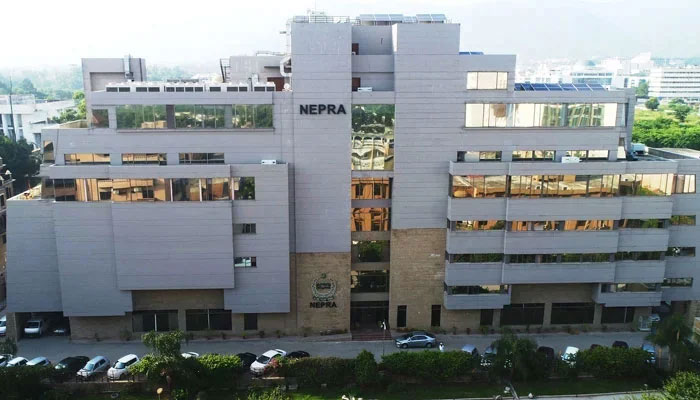Nepra issues notices to NTDC, CPPA over power plant procedures
Nepra criticized NTDC for inadequate responses regarding synchronisation of generating units with National Grid following blackouts
ISLAMABAD: The National Electric Power Regulatory Authority (Nepra) has issued Show Cause Notices to the National Transmission and Despatch Company (NTDC) and Central Power Purchasing Agency-Guaranteed (CPPA-G) for failures in power plant operating procedures.
Nepra criticized NTDC for inadequate responses regarding synchronisation of generating units with the National Grid following blackouts. The Authority’s review revealed that while NTDC proposed extended synchronization times for most power plants, only a few — specifically Bhikki, Balloki and Haveli Bahadur Shah — submitted signed procedures. Many other plants failed to provide necessary documentation.
In its findings, Nepra noted that NTDC attributed delays to the Operations Committee (OC) being responsible for finalizing operating procedures per the Power Purchase Agreement (PPA). However, Nepra emphasized that the PPA outlines a dispute resolution mechanism that NTDC has not adhered to.
In a significant step, Nepra has initiated legal proceedings against CPPA-G for not finalizing its operating procedures. The regulator found no documentation supporting CPPA’s claims of developing Standard Operating Procedures (SOPs) for system restoration after blackouts.
Additionally, Nepra highlighted ongoing disputes that have left the PPA for K2/K3 power plants unsigned. While operating procedures for New Bong Escape and Star Hydro are finalized, issues remain unresolved for major hydropower plants like Tarbela and Mangla. The authority expressed concern over NTDC’s limited coverage of black start facilities, questioning the systemic approach to essential requirements.
-
 Caleb McLaughlin Shares His Resume For This Major Role
Caleb McLaughlin Shares His Resume For This Major Role -
 King Charles Carries With ‘dignity’ As Andrew Lets Down
King Charles Carries With ‘dignity’ As Andrew Lets Down -
 Brooklyn Beckham Covers Up More Tattoos Linked To His Family Amid Rift
Brooklyn Beckham Covers Up More Tattoos Linked To His Family Amid Rift -
 Shamed Andrew Agreed To ‘go Quietly’ If King Protects Daughters
Shamed Andrew Agreed To ‘go Quietly’ If King Protects Daughters -
 Candace Cameron Bure Says She’s Supporting Lori Loughlin After Separation From Mossimo Giannulli
Candace Cameron Bure Says She’s Supporting Lori Loughlin After Separation From Mossimo Giannulli -
 Princess Beatrice, Eugenie Are ‘not Innocent’ In Epstein Drama
Princess Beatrice, Eugenie Are ‘not Innocent’ In Epstein Drama -
 Reese Witherspoon Goes 'boss' Mode On 'Legally Blonde' Prequel
Reese Witherspoon Goes 'boss' Mode On 'Legally Blonde' Prequel -
 Chris Hemsworth And Elsa Pataky Open Up About Raising Their Three Children In Australia
Chris Hemsworth And Elsa Pataky Open Up About Raising Their Three Children In Australia -
 Record Set Straight On King Charles’ Reason For Financially Supporting Andrew And Not Harry
Record Set Straight On King Charles’ Reason For Financially Supporting Andrew And Not Harry -
 Michael Douglas Breaks Silence On Jack Nicholson's Constant Teasing
Michael Douglas Breaks Silence On Jack Nicholson's Constant Teasing -
 How Prince Edward Was ‘bullied’ By Brother Andrew Mountbatten Windsor
How Prince Edward Was ‘bullied’ By Brother Andrew Mountbatten Windsor -
 'Kryptonite' Singer Brad Arnold Loses Battle With Cancer
'Kryptonite' Singer Brad Arnold Loses Battle With Cancer -
 Gabourey Sidibe Gets Candid About Balancing Motherhood And Career
Gabourey Sidibe Gets Candid About Balancing Motherhood And Career -
 Katherine Schwarzenegger Shares Sweet Detail From Early Romance Days With Chris Pratt
Katherine Schwarzenegger Shares Sweet Detail From Early Romance Days With Chris Pratt -
 Jennifer Hudson Gets Candid About Kelly Clarkson Calling It Day From Her Show
Jennifer Hudson Gets Candid About Kelly Clarkson Calling It Day From Her Show -
 Princess Diana, Sarah Ferguson Intense Rivalry Laid Bare
Princess Diana, Sarah Ferguson Intense Rivalry Laid Bare




